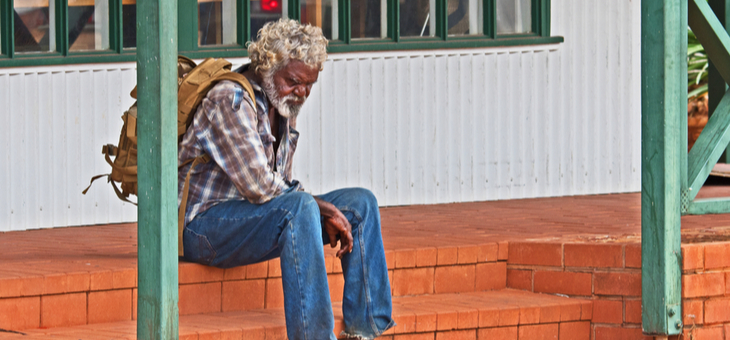A 64-year-old man is taking the federal government to court in order to get the pension age reduced, but not for everyone.
Wakka Wakka man Dennis says Indigenous Australians should have earlier access to the Age Pension because their life expectancy is years shorter.
“A lot of us die at a young age,” he said. “If I can help my people somehow, yeah,” he added.
Currently, Indigenous men can expect to live, on average, 71 years – or 8.6 years fewer than other Australian men.
For Indigenous women, life expectancy is 75 years – or 7.8 years fewer than other Australian women.
Since 1 July 2021, the minimum pension age is 66.5 and that will increase to 67 by July 2023.
The government may be pressuring an ageing population to retire later, but the average Indigenous male living in a remote area won’t even make it to retirement age.
Life expectancy in remote and very remote areas is 65.9 years for Indigenous men and 69.6 years for Indigenous women.
The case, filed in the Federal Court in Melbourne last week, argues the government should consider the gap in life expectancy for Indigenous people by lowering the pension age – at least until the gap is closed.
Read: What we can learn about support from Third World nations
Indigenous lawyer Meena Singh says this is not a case of “special treatment” for Aboriginal and Torres Strait Islanders.
“… while the special treatment experienced by the British and their descendants ensured their prosperity, the special treatment our people experienced entrenched our disadvantage, economic and social exclusion, poor health outcomes and shorter life expectancy,” she wrote in Indigenous X.
“Most Australians’ understanding of fairness and equality is very simplistic. Based on the idea of a ‘fair go’, it implies that most of us have started off on a level playing field.
“But when two groups of people have experienced such different histories, it is not enough to say, ‘we’ll treat you all the same now’ and expect our outcomes to be the same.”
Dennis’s case is premised on Section 10 of the Racial Discrimination Act, which deals with a group of people who have lesser rights than another group.
“People say Australia is the Lucky Country. But I say, lucky for who? Not for the people of this land,” said Dennis.
Social services minister Anne Ruston said the government’s “number one priority is working with Indigenous communities to make the real and practical changes necessary to achieve better life outcomes for Indigenous Australians.”
Read: Our country, our way – why Australia must embrace Indigenous knowledge
When the federal government apologised to Indigenous Australians for past wrongdoings incurred since colonisation, it also launched the Closing the Gap initiative aimed at achieving equality for Indigenous Australians in health and life expectancy within 12 years.
That was in 2008. Last year, Prime Minister Scott Morrison scrapped the policy.
However, the government has since promised to spend $1.1 billion to address indigenous disadvantages.
Indigenous Australians still have poorer health, fewer opportunities and lower levels of education. They make up 3 per cent of the population. Two per cent of those are adults and comprise just 0.95 per cent of Age Pension recipients.
Read: Government scraps plan to lift retirement age to 70
Dennis and Ms Singh want to see the government “achieve better outcomes”.
“Because after generations of mistreatment and exclusion creating shorter life expectancy, after a life lived on stolen land, in the shadow of the stolen children, of stolen wages and opportunity, allowing Aboriginal and Torres Strait Islander people to access the Age Pension a few years earlier would allow some small measure of dignity,” writes Ms Singh.
“This case is a real opportunity to talk honestly, to truly understand how past injustices lead to ongoing disadvantage. It is a chance for our legal system to think beyond equality of treatment to implementing equity of outcome.
“It takes generations to change life expectancy. But allowing access to the Age Pension at an earlier age is a small measure that can be taken now by the federal government to allow Aboriginal and Torres Strait Islander people – people who have received special treatment in the form of removal of children, denial of culture, racism and exclusion – a small measure of dignity in their older years.”
How do you feel about this? Should Indigenous Australians be granted early access to the Age Pension? Should there be other exemptions for early pension access? Why not share your opinions in the comments section below?
If you enjoy our content, don’t keep it to yourself. Share our free eNews with your friends and encourage them to sign up.

